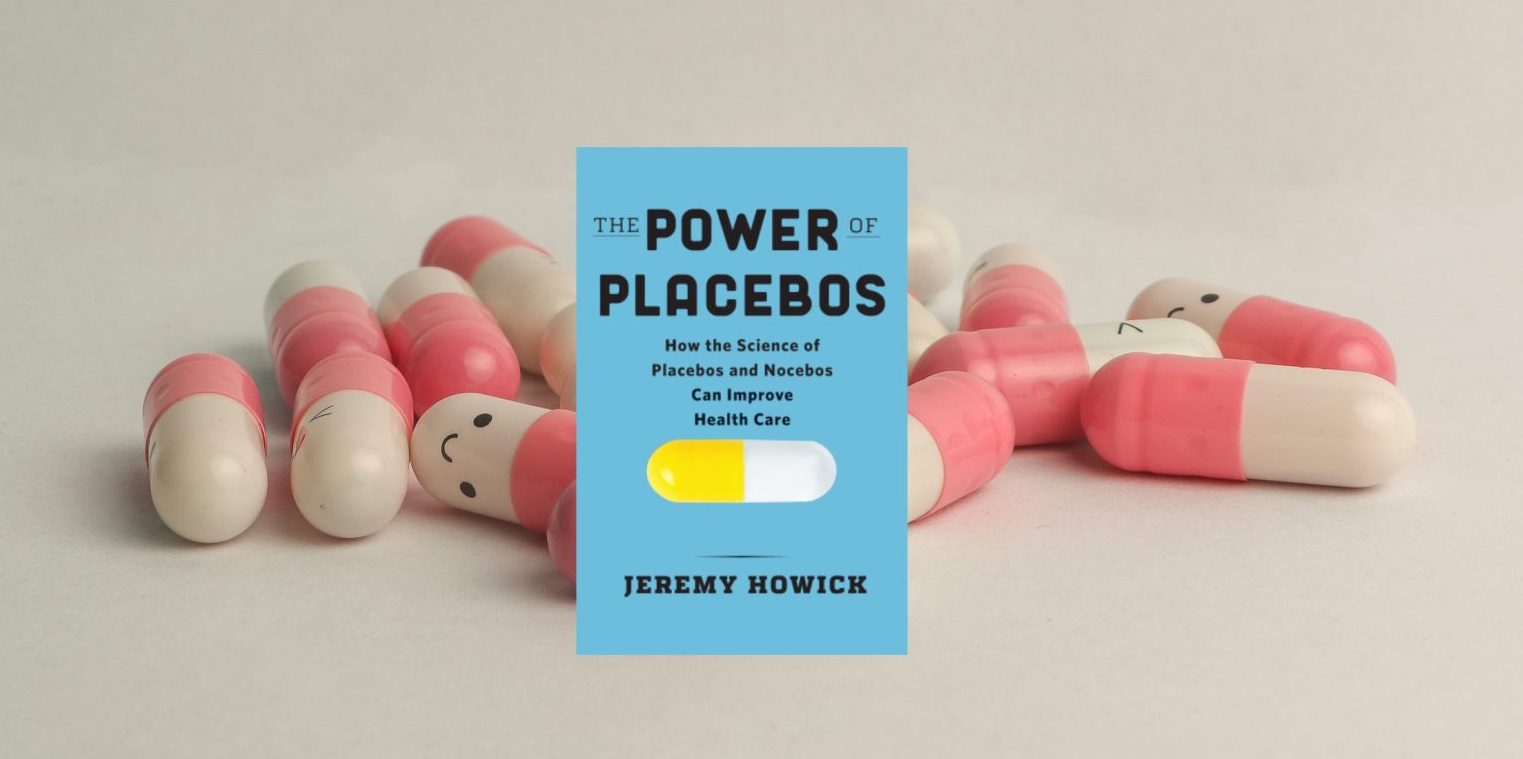 Andrew Papanikitas is deputy editor of the BJGP, and a GP in Oxford. He is on X: @gentlemedic
Andrew Papanikitas is deputy editor of the BJGP, and a GP in Oxford. He is on X: @gentlemedic
Placebos, according to Jeremy Howick, are complex medical treatments, whose core components such as (part of) a pill, injection or even surgical procedure are inert relative to the disorder, but when given in a meaningful context can have a beneficial effect. In his new book Jeremy Howick not only teaches us about what placebos are and how we should use them, but what we can learn from them, and how this may help us to adopt a better kind of healthcare. The author is a consummate storyteller with an avowed commitment to the use of ordinary language in his explanations -rather than jargon. The book accordingly explores the historical and linguistic origins of the placebo phenomenon, philosophically dissects it, and discusses how it can benefit patients and the clinicians tending to them with evidence, personal accounts and thought-experiments.
Regardless, the book was full of surprises.
At this point the author would expect me to declare a slight conflict of interest. I have worked with him at the University of Oxford and co-authored 2 papers, one setting out an approach to more honest reporting of placebos in medical research,1 and another suggesting some empathy driven-low cost ‘tips’ for the GP consultation.2 I also recently wrote in BJGP life about a visiting fellowship at the Stoneygate Centre in Leicester Medical School, where Jeremy Howick is Professor of Empathy in Medicine.3
Regardless, the book was full of surprises. I was personally interested in the ancient and medieval expressions of placebo through charms and prayers – the ancient philosopher Plato describes a particular leaf as a cure for headaches, which only worked if charm was uttered at the moment of its application. I was tickled to think of placebo as a mistranslation of Psalm 114 v.9 in the Old Testament, ‘I will please the Lord in the land of the living.’ I was thrilled to see the author citing one of my favourite childhood stories, ‘Stone soup,’ (Is the stone a placebo – the author asks?) and had no previous idea of its Portuguese monastic origins. There is a lot of name-dropping in the text as the author cites eminent medical and historical figures as well as those contributing to a healthy philosophical, ethical and scientific evidence base for placebo, an occasionally this gets in the way of the flow of narrative and argument. However, importance of sources being identifiable and reliable is not lost. Somehow most surprisingly the author’s life and experiences are also key ingredients in the text. His early memory of losing his baby brother is offered as a generous and sad reflection that anyone with a shred of empathy will be moved by, amongst other examples of the author’s voice. The book also builds on Jeremy Howick’s previous work on the philosophy of evidence-based medicine4 and the scientific basis for self-healing and empathic care.5
The power of placebos is both a manual and a manifesto.
The power of placebos is both a manual and a manifesto. It both a guide to the ethical use of placebos in healthcare, as well as placebos as a window into empathic, meaningful healthcare. Jeremy Howick sets out a stall for clinicians and researchers. He also challenges designers of healthcare spaces and policy makers to set out the physical and regulatory healthcare workplace in a way that promotes patient and practitioner health. The book promises part of a “Second revolution’ in placebo studies. This is where placebo studies go on the offensive to offer us all the benefits and protect us from the harms of the placebo effect and the insights from placebo studies help us to address the toxic effects of healthcare on patients and clinicians. It’s a very attractive proposition – can we make it work?
Featured book: Jeremy Howick, The power of placebos: how the science of placebos and nocebos can improve healthcare, Johns Hopkins University Press, 2023, ISBN 9781421446387, $32.95 (also available in e-book format)
References
- Webster RK, Howick J, Hoffmann T, Macdonald H, Collins GS, Rees JL, Napadow V, Madigan C, Price A, Lamb SE, Bishop FL, Bokelmann K, Papanikitas A, Roberts N, Evers AWM. Inadequate description of placebo and sham controls in a systematic review of recent trials. Eur J Clin Invest. 2019 Nov;49(11):e13169. doi: 10.1111/eci.13169. Epub 2019 Sep 30. PMID: 31519047; PMCID: PMC6819221.
- Just do it! Ten easy ways to enhance empathy in the consultation,
- Papanikitas A, #BJGPLife on tour – find us in the crowd at RCGP Annual Conference 2023!, BJGP Life (October 19th 2023), https://bjgplife.com/bjgplife-on-tour-find-us-in-the-crowd-at-rcgp-annual-conference-2023/ [accessed 15/5/24]
- Howick J, The Philosophy of Evidence-based Medicine, BMJ Books, 2011, Paperback, 244 pages, ISBN-10: 140519667X £48.95
- Howick J, Doctor You: introducing the hard science of self healing, Coronet, 2017, Paperback, 336 pages, ISBN-10: 9781473654228, £10.99







[…] Deputy editor’s note: see also –https://bjgplife.com/the-power-of-placebos-how-the-science-of-placebos-and-nocebos-can-improve-healt… […]